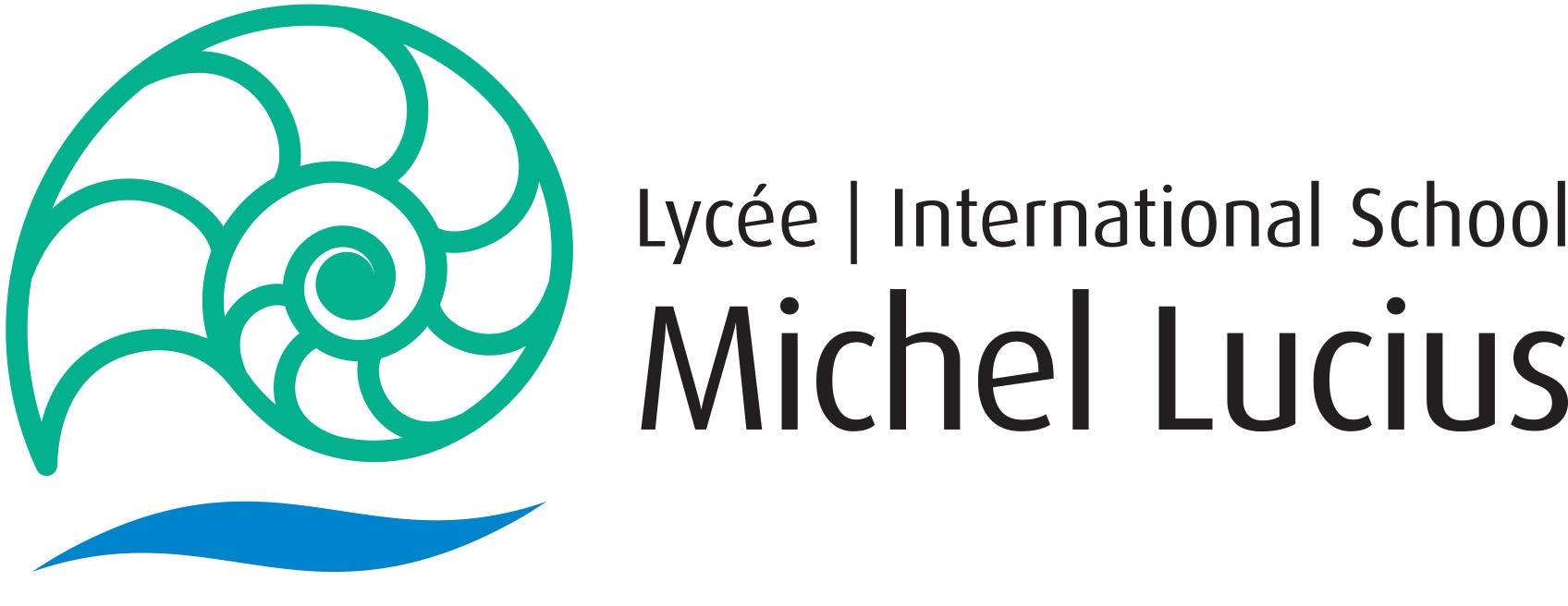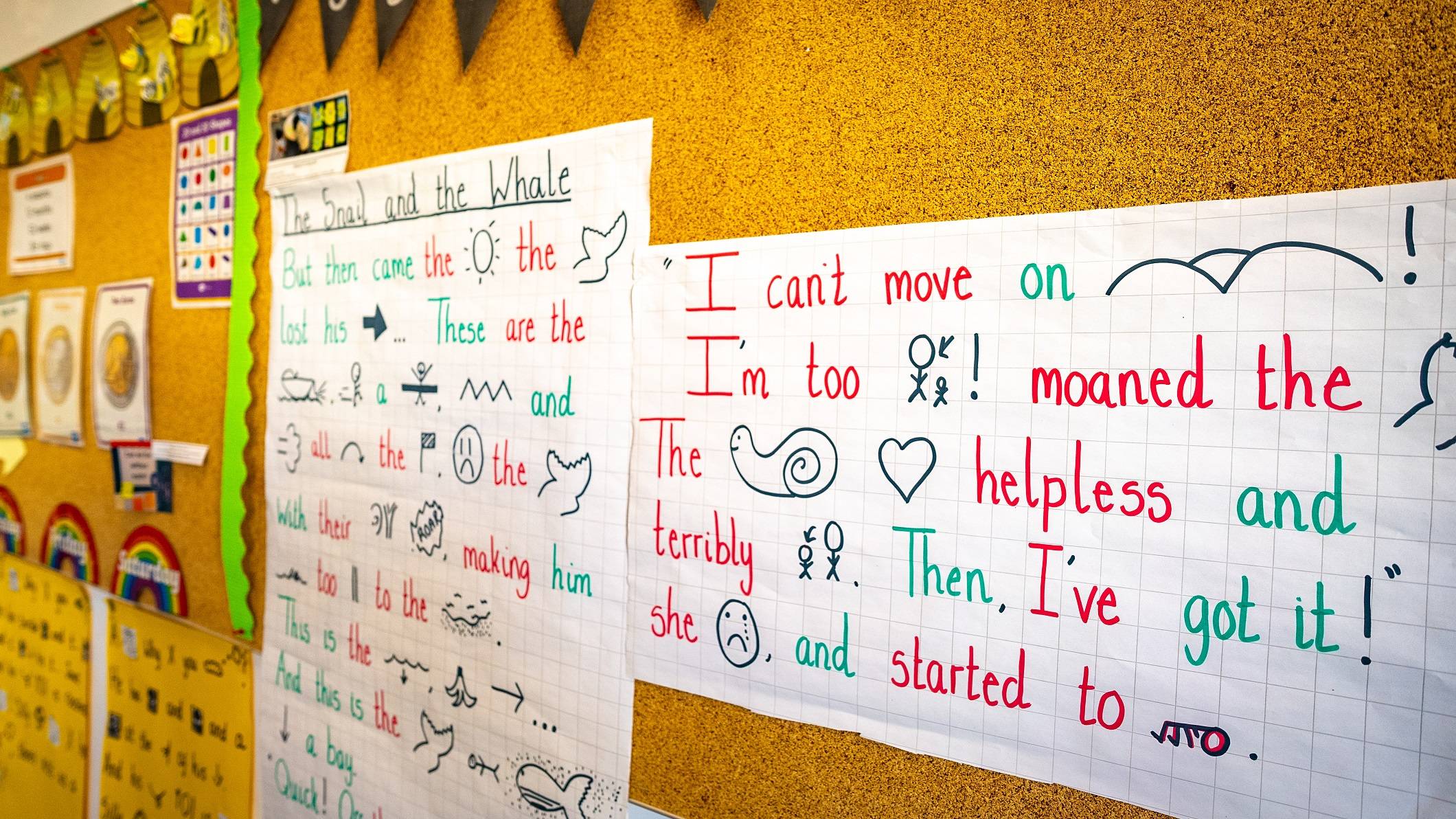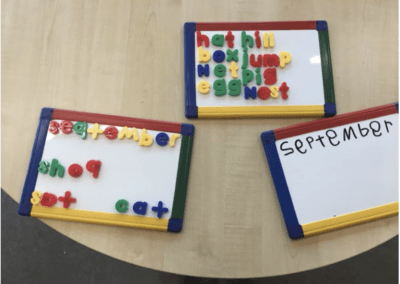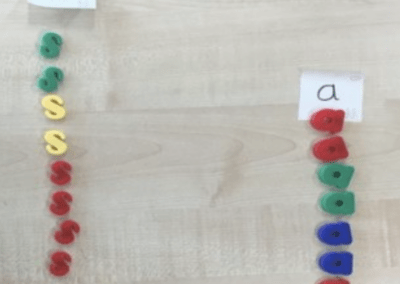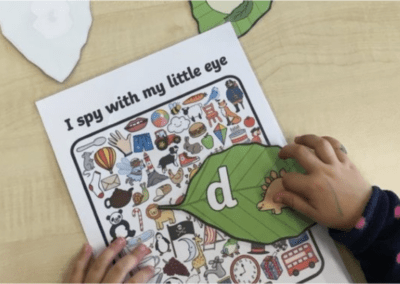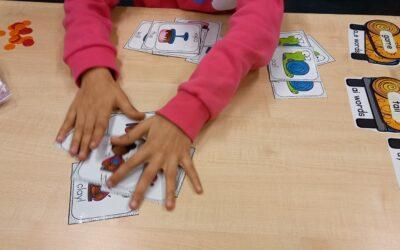English at ISML
The study of English at ISML follows the Cambridge Primary English Curriculum. The learning objectives are divided into main areas of learning called ‘strands’ whose titles reflect the four language skills:

Reading
Children explore and enjoy a wide range of fiction and non-fiction books as part of English lessons and across the curriculum. They are encouraged to read for pleasure and to find out new information.
Learners explore the features of a different text types and how this is related to their purpose and audience.Children have weekly library sessions which support their interest and engagement in reading.
The library is a warm and welcoming place in which children are free to discover texts from a wealth of genres and enjoy reading for pleasure.

Writing
Children learn to write for a variety of contexts and purposes, taking into account their audience. They develop the skills needed to organise, sequence and connect the ideas in their writing for clarity, cohesion and impact. They are encouraged to reflect and evaluate their own writing as well as respond to the writing of their peers.
Speaking and Listening
Learners develop the essential skill of making themselves understood. They learn how to present information clearly and organise and adapt their talk for different audiences and purposes. They learn how to listen and respond through group work and collaboration with others. Learners have the opportunity to develop confidence and proficiency in reading aloud, performing drama and giving presentations to an audience.
Phonics
In years 1 and 2 the study of phonics underpins the early stages of reading and writing. Phonics is an integral part of children’s journey to become readers and writers. It helps children identify different sounds in the English language and distinguish them from one another. Through a variety of activities including, stories, songs, rhymes and games, children learn the different sounds in English and their corresponding graphemes with the goal of being able to to use them independently to read and write.
English as Additional Language
The aim of our EAL program is to develop students’ academic English in order for them to access the curriculum independently, and to achieve grade-level expectations. Although language learners usually achieve BICS (Basic Interpersonal Communication Skills) in a relatively short time span, it takes more time and effort to be secure in CALP (Cognitive Academic Language Proficiency). For this reason, students who are still acquiring English language skills are pulled out in smaller groups for additional English support, rather than starting a Modern Foreign Language.
Our EAL department is guided by the “Can-do” philosophy of WIDA©, which means we leverage our multilingual students’ diverse backgrounds, and draw on their knowledge and skills in multiple languages to enrich our classrooms. We maintain high standards by looking at language holistically – working at the word level (vocabulary), sentence level (conventions and syntax), and discourse level (organization and cohesion).
